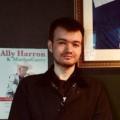AS EAST Lancashire continues to do its utmost in the battle against the coronavirus pandemic, scientists working at the region's Covid testing mega-lab have given residents an inside glimpse into the vital work they are doing to help find a vaccine.
Alderley Park Lighthouse Lab in Cheshire is one of five facilities across the country that have been set up to process virus test samples and work to help find a vaccine and as well as carrying out tests for samples taken from Blackburn and East Lancashire also serves the entire North West of England.
Director Mark Wigglesworth, who holds a PhD in Biochemistry and Molecular Biology from Leeds University, has the huge responsibility of ensuring that the vital facility runs smoothly and under his leadership the site has grown continuously to help meet testing targets.
Explaining how he came to take up the challenge Dr Wigglesworth said: “I think much the same as everybody else, there was a call to arms.
“I knew a lot of the people that were involved in creating this organisation in the Medicines Discovery Catapult, having worked with them in different parts of my career, historically.
“And it was that infamous phone call everyone had, who’s now working here.
“They said we've got a problem here and we think you can help and of course, the answer is yes, quickly followed up by, what do you need?”
The facility was set up from scratch in March by a partnership including the Department of Health, Cancer Research UK and Manchester University in order to meet the drastically increased need for testing across the region.
This has been especially acute given the high infection rates in boroughs like Blackburn with Darwen and Burnley.
As well as the North West, the lab also receives samples from all over the country.
To help tackle this, coronavirus swap samples are sent to the Lighthouse Lab for analysis, with over 40,000 samples being sampled each day, totalling over 4 million since the facility opened.
To this end the lab has recruited more than 430 staff members ranging from experienced scientists to junior graduates.
Until recently the team had included Blackburn born cancer research scientist Dominic Rothwell who was able to bring his skills into play researching a coronavirus vaccine and who has since returned to his original role at the University of Manchester.
Their task has not been an easy one, however the scientists have kept up their determination to carry on.
Dr Wigglesworth said: “There have been plenty of long hours and late nights, trying to identify the points we can improve upon.
“Actually also, plenty of trying to work with people to expand the organisation to meet the ever-growing need for capacity and then look at how we sustain this and go beyond the next few months into something that will be a lasting organisation at Alderley Park.”
He added: “I've even taken a test myself that's been processed here in the lab.
“You sit there at home and then when that test result comes through, it really meant something to me as a patient.
“And to think that there are two million others out there that have had that data come from this laboratory, to be able to make a difference to their lives, to be able to make a difference to the country, enabling their return to near normality, return to work.
“It's an amazing feeling to have been part of that.”






Comments: Our rules
We want our comments to be a lively and valuable part of our community - a place where readers can debate and engage with the most important local issues. The ability to comment on our stories is a privilege, not a right, however, and that privilege may be withdrawn if it is abused or misused.
Please report any comments that break our rules.
Read the rules here